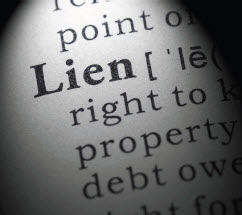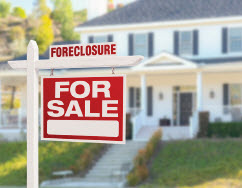
Ultimate Guide to Foreclosure
Everything you need to know about foreclosure and how to stop it
Nobody buys a home expecting that they may one day lose it. This is one of the most upsetting things that a person can experience in life, but it is an unfortunate reality for so many Americans. Indeed, the FDIC believes that every three months, more than a quarter of a million US families face foreclosure.
This is certainly food for thought, and a statistic that is likely to be far higher right now as people all across the country try to deal with the effects of coronavirus. Foreclosure is what happens when a homeowner fails to keep up with the mortgage payments on their home, and thus ownership of the home defaults to the bank. Foreclosure could see people lose ownership of their property, and they are often forced to watch their dream home sold at auction for a fraction of the price at which they bought it.
To avoid the risk of foreclosure means making sure the mortgage is never in arrears, and there are a few techniques that can be used to achieve this. There are a number of programs out there that are designed to help people who face the threat of foreclosure, and those who might struggle to meet their monthly payments. Let’s take an in-depth look at the foreclosure process, what it is, and how it affects homeowners. This is not legal advice, and should be taken solely as an informative guide; homeowners are advised to seek professional guidance if they want legal advice.
WHAT IS FORECLOSURE?
In order to understand how to face and overcome the threat of foreclosure, it is important to understand a little more about it. So, what exactly is foreclosure? Well, as we touched on earlier, it’s what happens when homeowners default on their mortgage payments, and their home is repossessed by the bank (or lender) who gave them the mortgage.

Typically, if a person is in a position where they face foreclosure and their home is repossessed, it will be sold by the bank, and the proceeds used to clear the mortgage and pay fees. Many states in the US have slightly different rules regarding foreclosure, and we’ll look more closely at these below.
BANKRUPTCY TERMINOLOGY
First things first, there are different terms that are frequently used during the discussion and implementation of residential foreclosure. And it is important to gain some idea of the different terms that will frequently crop up, as well as understanding what they mean.

Judicial Versus Nonjudicial Foreclosure
Judicial Foreclosure
The most common type of foreclosure is a judicial foreclosure, and this is where the party that seeks to repossess the property (typically the lender) files a lawsuit. The direct result of this is that the foreclosure process will end up going through the court system. This is generally the most common form of legal foreclosure, but it’s not used by every state. Among the states that favor judicial foreclosure include Florida, New York, and South Carolina.Nonjudicial Foreclosure
Indeed, some states actually use a set of out-of-court rules and laws in order to proceed with the foreclosure process, without the need to go through the courts. Some states will offer the choice of judicial and nonjudicial foreclosures, and it’s common for one to be favored over the other. Some of the states that use nonjudicial foreclosure include Arkansas, California, and Michigan.Delinquent (Mortgage Delinquency)
Delinquent is a more official terminology used to describe default on mortgage payments. It essentially means that a homeowner is late on making their mortgage payments. And, if a person is unable to pay the amount owed on their delinquency in a particular time frame, the lender will begin the foreclosure process. Mortgage delinquency has skyrocketed since the coronavirus pandemic, with more than 3.5 million Americans believed to be behind on mortgage payments

Lien
Lien is a term often used when talking about foreclosure processes. Basically, the lien is the legal claim on a property by creditors in order to collect what they are owed. Liens legally prevent the owner from attempting to sell, refinance, or transfer ownership of the home moving forward. This is a commonly used term and one that it is important to get familiar with because it is essential to the process, and will help shed more light on the process and how it works.

Deficiency Judgment
A deficiency judgment is one that occurs when a home goes into foreclosure and sells but for an amount less than what the owner owes. They are responsible for the repayment of the outstanding amount, and this is known as deficiency judgment. Some states allow deficiency judgment orders, while others don’t, so it pays to check out each state’s position on this in advance.

Foreclosure Differences By State
It is important to understand that foreclosures tend to be covered by state laws rather than federal laws, so it helps to know the different mandates between the states, and what each specific state’s laws are when it comes to foreclosures. Check out this guide below that will give a better idea of what to expect, and how the process differs state by state.
Judicial Foreclosure States
Here is a list of all the states that currently use judicial foreclosure as their foreclosure process:
Connecticut, Delaware, DC (sometimes, not always), Florida, Hawaii, Illinois, Indiana, Iowa, Kansas, Kentucky, Louisiana, Maine, New Jersey, New Mexico (for any mortgages pre-2006), New York, North Dakota, Ohio, Oklahoma, Pennsylvania, South Carolina, Vermont, Wisconsin.
States Nonjudicial Foreclosure
Here is a list of all the states that currently use nonjudicial foreclosure as their foreclosure process.
Alabama, Alaska, Arizona, Arkansas, California, Colorado (court must ratify), DC (sometimes), Georgia, Idaho, Maryland (court must ratify), Massachusetts, Michigan, Minnesota, Mississippi, Missouri, Montana, Nebraska, Nevada, New Hampshire, North Carolina, Oregon, Rhode Island, South Dakota, Tennessee, Texas, Utah, Virginia, Washington, West Virginia, Wyoming.
States That Allow Deficiency Judgement
Look, at the end of the day, nobody wants a deficiency judgment, but this is an important part of the process when it comes to dealing with foreclosures. As a result, many states allow deficiency judgments.
Here, we’ve listed these:
Alabama, Arkansas, Colorado, Connecticut, Delaware, DC, Florida, Georgia, Hawaii, Idaho, Illinois, Indiana, Iowa, Kansas, Kentucky, Louisiana, Maine, Maryland, Massachusetts, Michigan, Mississippi, Missouri, Nebraska, Nevada, New Hampshire, New Jersey, New Mexico, New York, North Carolina, North Dakota, Ohio, Oklahoma, Pennsylvania, Rhode Island, South Carolina, South Dakota, Tennessee, Texas, Utah, Vermont, Virginia, West Virginia, Wisconsin, & Wyoming.
States That Don’t Allow Deficiency Judgement
Of course, there are also some states that do not allow deficiency judgment, and it’s important to know which they are, as this could have very important implications for the future following foreclosure.
Here, we’ve listed these:
Alaska, Arizona, California, Indiana, Iowa, Minnesota, Montana, Oregon, & Washington State.
Tips to Help Avoid Foreclosure
It is important to have tips to refer to when working toward a plan to avoid foreclosure if the process is already starting. Once the wheels are in motion, there are a number of options available for helping avoid an actual foreclosure going through, and here are some of the key ones.
Contact the Lender
It is important to have tips to refer to when working toward a plan to avoid foreclosure if the process is already starting. Once the wheels are in motion, there are a number of options available for helping avoid an actual foreclosure going through, and here are some of the key ones.
Bankrupcy
Of course, nobody wants to declare themselves bankrupt, but sometimes this is the best option under the circumstances. A bankruptcy will not stop the foreclosure process, but it will halt it for a predetermined amount of time, allowing the homeowner to come to some sort of arrangement with the lenders. Sometimes hitting reset and starting again can prove to be a positive thing, as scary as it may seem now. There are two different types of bankruptcy to consider, chapter 13 and chapter 17, and we’ll look at them below.
Chapter 11 Bankrupcy
At a basic level, Chapter 13 bankruptcy is for those who are still earning regular income and is focused on developing a plan for repayment of outstanding debts. Chapter 13 bankruptcy will accomplish the goal of helping to save the home by allowing people to restructure and repay outstanding debt over a period of 3 to 5 years. Being able to repay this debt in a structured way generally allows them to stay in their home.
Chapter 7 Bankrupcy
Chapter 7 bankruptcy differs from Chapter 13 in one major way – it starts the foreclosure process, and it will not save the home. Chapter 7 bankruptcy allows people a little bit more time to stay in the home without having to make payments, and it also eliminates liability for the remaining mortgage debt.
Get a Quick Sale
One of the best techniques that can be used to help avoid a potential foreclosure is to go for a quick sale. This is where a homeowner can counteract the issue of foreclosure by selling their property quickly, typically at a knocked down price. If they still have equity in the property, then they can sell the home and use the proceeds to pay off the outstanding mortgage. However, if someone owes more than their home is worth they’ll want to consider what’s known as a ‘short sale.’ In the case of a short sale, the bank will agree to accept this as a sale as it will save them time, effort, and money. A short sale won’t save a credit score, but it is a good way of putting an end to the foreclosure process sooner rather than later.
Deed in Lieu
This is basically the process of signing ownership of the property over to the bank or mortgage lender, instead of electing to go through the foreclosure process. There are a number of reasons someone might decide to go down this path, the most common being that a home has been on the market a few months and has been unable to sell. The trouble is that a deed in lieu generally has the same impact as a foreclosure in terms of how it impacts a credit score, and banks are often reluctant to accept a deed in lieu if it can be helped. This is why this is generally considered to be a last resort for a lot of people in this situation.
Tips to Prevent Foreclosure
Prevention is often better than cure, so they say. And this is something to look into when it comes to the issue of foreclosure. Assessing some of the best ways of being able to prevent foreclosure removes the risk of even having to avoid it in the first instance, and these are some of the best ways of doing this.

Stay Organized
Be as organized as possible when it comes to the upkeep of the home, and try to come up with the best possible tips that can be used to achieve this. It’s crucial to make sure this is a process as organized as possible, and this means keeping all of the paperwork that is pertinent to the property together in a folder. The more organized a homeowner can be, the more they can see what payments they’re making or that they need to make.

Know Your Legal Rights
Study legal documents closely, and try to do as much as possible to figure out what they mean and what the legal situation is. Knowing what will happen when defaulting on payments is so important for preparing a course of action to deal with this, as well as what kinds of late fees should be expected for those who might be late with payments.

Get Your Finances in Check
Shrewd financial management can often make the difference between those who default on mortgage payments and those who don’t. Figure out monthly income and expenditure, and think about what changes can be made to get to the best solution. By seeing all the information laid out, it actually makes it significantly easier to keep finances in check and prevent the possibility of foreclosure.

Avoid Borrowing/Loans
For those facing imminent risk of foreclosure, a loan might seem like one of the best courses of action, but this may not always be the case. The problem is that a loan at this stage is simply increasing any debt further, and this is actually making the issue worse long term. Speak to the provider and try to come to some sort of arrangement with them; avoid taking out a loan at all costs.

Seek Legal Advice
It should be noted that we are not lawyers, and this guide does not constitute legal advice, merely information. Any homeowners wishing to know more about the legalities surrounding the foreclosure process, and what the deal is in their state, should definitely seek advice from a qualified attorney. Legal protection is essential in situations like this, and it is essential to make sure you keep up with this as much as possible.
Deficiency Judgements – How To Avoid One
Basically, a deficiency judgment means that the home sells during foreclosure, but it sells for less than the total amount owed. Whatever this extra cost is, the homeowner would be legally liable for it and required to pay. Not paying off this delinquency can result in a lien on their personal property, and this is something that should be avoided. There are generally three accepted steps someone can take to avoid a delinquency judgment:STEP 1
Choose a short sale – if this is the chosen route it means a delinquency waiver contingency will need to be negotiated by legal representatives. This will need to be included in the short sale contract.
STEP 2
File for either Chapter 13 or Chapter 7 bankruptcy, depending upon circumstances.
STEP 3
Finally, agreeing to a consent foreclosure is one of the easiest ways to avoid a deficiency judgment.
Foreclosure Help – Treasury Department Programs
According to the US Treasury Department, there are a number of programs in place that are specifically designed to help those who are potentially facing the issue of foreclosure. Check out some of these programs to see which can help in the best possible ways.
MHA (Making Home Affordable)
The Making Home Affordable (or MHA) program is one that was specifically designed to help stabilize the housing market by offering homeowners the chance to reduce their mortgage payments. This is a strategy that provides the greatest amount of help or opportunity to the largest number of people, and below is a selection of the programs to read up on right now.
HAMP (Home Affordable Modification Program)
HAMP is an essential program because it lowers monthly mortgage payments to 31% of monthly gross income. Close to 20% of HAMP homeowners were able to reduce their payments by close to $1,000 or more.
HARP (Home Affordable Refinance Program)
HARP is a program homeowners can use if they feel like their current program isn’t working the way they want it to. For those who have been unable to secure refinancing by traditional means, this is one of the best ways of helping prevent foreclosure.
PRA (Principal Reduction Alternative)
Principal Reduction Alternative (PRA) is perfect for homeowners whose properties are worth far less than they owe, The idea of the project is to encourage servicers to reduce the amount owed on the home, making things a little easier to process.

What To Do At The State Level
Of course, as we covered earlier, the foreclosure process can be markedly different from state to state. And that’s why it is so important to understand these differences. These are some of the tips available at state level that can help people understand and avoid foreclosure as much as possible.Contact a Housing Counselor (HUD-approved)
It is generally a good idea to get in touch with a HUD-approved Housing Counselor to see whether they can help and what advice they can offer. They might be in a position to figure out the best ways of helping avoid foreclosure, or they can refer homeowners to programs that might help. They are also going to be able to answer any questions, and this makes them an invaluable resource. And the best thing about them is that they will work with you free of charge!Learn the State Laws
It is vital to learn what the laws of a particular state are regarding the issue of foreclosures, and we covered this above in a little more detail. Foreclosure laws and timelines can vary significantly, but there are typically two things people should be looking into:
- How long they have to make a deal before they are in danger of losing the home to the foreclosure process.
- Exactly what their rights are during the foreclosure process – speaking with an attorney could be the best way of finding this out if you are still unsure.
Summary
Facing the possibility of a foreclosure is horrible, and it’s important to understand what can be done to prevent it. There are a lot of different techniques for achieving this, as this guide shows. Taking steps to look after the home and ensure mortgage repayments are made on time every month is essential. Tips for avoiding foreclosure include things like making a quick sale, filing for bankruptcy, and getting in touch with lenders. It’s also important to understand the different government programs that are in place to help homeowners facing the threat of foreclosure. Among these are the HAMP, HARP, and PRA programs. Preventing foreclosure can be achieved by understanding legal rights, keeping finances in check, and being more organized. Keeping up with monthly mortgage payments is the most important thing, and if homeowners are having affordability issues, it is imperative that they get in touch with their mortgage provider to try to figure out a solution that will help avoid, delay, or prevent foreclosure as much as possible.
